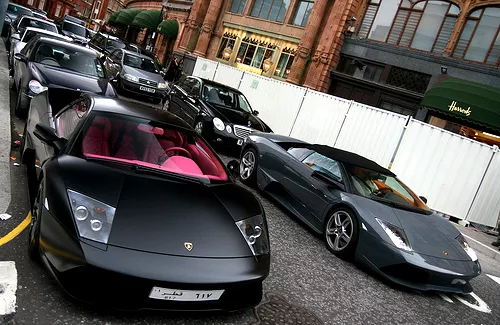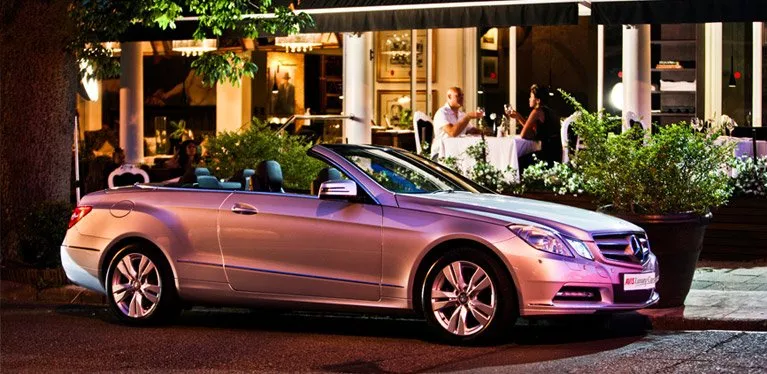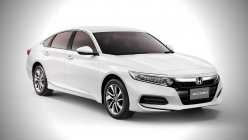The proposed hike in excise taxes, however, are said not to hurt the automotive industry’s robust growth in the long run.
The proposed change to the current vehicle excise tax will be the biggest motoring headline for 2017.
According to the Department of Finance (DOF), the local automotive industry’s growth would not be seriously affected by the proposed adjustments in the excise tax on high-end car segment.
According to the Department of Finance (DOF), the local automotive industry’s growth would not be seriously affected by the proposed adjustments in the excise tax on high-end car segment.
>>> View more: House Bill 5636 to raise excise taxes on automobiles
The proposed increase in excise taxes under the first package of the Comprehensive Tax Reform Program (CTRP) may initially slow down vehicle sales but our industry would be able to adopt and recover quickly and continue the fast pace of its growth. This statement is based on the ASEAN automotive industry enjoying a robust double-digit growth during the past few years. Many member economies of the ASEAN has excise tax rates over 100%. Therefore, the proposed adjustments in car excise taxes may not curtail this growth.
>>> Southeast Asia is expected to be the world's fastest-growing automotive market during 2017. Read full our article for further analysis on particular markets.
Raising more excise taxes on luxury vehicles is a part of House Bill 5636 (also known as the proposed Tax Reform for Acceleration and Inclusion Act or TRAIN) now pending before the Senate. Under this new piece of legislation, the government plans to make the excise tax system more progressive, by among others, replacing the existing four-bracket system with a five-tier structure that will levy higher rates on the pricier high-end car segment.

The local automotive industry’s growth would not be seriously affected by the proposed adjustments in the excise tax on luxury car segment
In a statement, Karl Kendrick Chua, Undersecretary of the DOF, shared that vehicle excise tax rates in Indonesia and Malaysia are as high as 125% and 105% respectively. Despite these high excise tax rates, the luxury car markets of these two countries continue to thrive.
>>> Click here if you are interested in 7 most insanely expensive cars in the world
Chua emphasized that despite high excise taxes and a decline in the overall vehicle market, the luxury cars market in Malaysia increased 3.9% in 2016. In Indonesia, the German luxury car maker BMW announced that the company will make a significant new investment in the expansion of its BMW production activities due to high demand despite high tax rates.
The same holds true in our country. Satoru Suzuki, President of Toyota Motor Philippines (TMP), recently told the media that Toyota is not revising its production output for 2017 even when the company anticipates an initial drop in car sales due to the looming car prices under the proposed adjustments in car excise taxes. Satoru believes the Philippines automotive industry will continue its healthy growth rate even with the proposed hike in excise taxes.
The government has certified the proposed TRAIN as an urgent measure as the bill will help ensure the financial sustainability of the government’s ambitious agenda to sustain the Philippines’ growth momentum and accelerate poverty reduction. TRAIN or House Bill 5636 aims to make the Philippines’ antiquated tax system simpler, fairer and more efficient, especially for the poor and low-income families, by seeking to lower personal income tax (PIT) rates.
Chua further explained: “The Duterte administration’s tax reform agenda is not meant to unduly burden taxpayers.” He added: “It is meant to shift the burden to those who should pay more but have for a long time avoided payment or enjoyed a free ride from blanket exemptions and special treatment.”
“The Constitution mandates that the system of taxation must be progressive, that is, taxes are borne by those who can afford more,” he shared. Taxes on luxury commodities may help to ensure poor and low-income people contribute in line with their capacity to pay thus increase equity in the tax system, according to Chua.
>>> The 2017 London Motor Show with the attendance of luxury brands like Aston Martin, Lamborghini, Mini and Rolls Royces. Read full our article for more details.

Automobile excise tax rates in Indonesia and Malaysia are as high as 125% and 105% respectively, yet their luxury car markets continue to thrive
Also, the DOF official said that under HB 5636, prices of mass-market automobiles in the first bracket will only rise slightly. For example, the base model Toyota Vios will increase by around P13,000.
The DOF representative shared: “This means that even at 50% interest, which is a very high assumption even at the worst financing terms, the proposed tax rate for mass-market cars will only add at about P350 in amortization when spread over 60 months, which is the standard loan duration for cars. The additional take-home pay resulting from the proposed hefty personal income tax cuts can more than offset this.”
Chua also pointed out that the TRAIN bill seeks to impose an excise per liter of refined petroleum products, as well as on vehicles, except following vehicles:
- Special purpose vehicles: fire trucks, cement mixers, boom trucks, ambulances, off-road vehicles for heavy industries
- Cargo vans, trucks , buses, pick-ups, jeepney/jeepney substitutes
- Commuter vehicles
- Utility vehicle (UV) express units cost between P800,000 and P1.3 million
>>> Click here if you want to admire the world's most expensive Rolls-Royce
AURELIO - The First Filipino Supercar
Top 5 Luxury Cars 2017
luxury cars
Luxury brands
auto sales report
ASEAN car market
Toyota Motor Philippines (TMP)
Consumer Reports
TRAIN
House Bill 5636
excise taxes
Department of Finance
CTRP
Recent posts
- GAC GN6 MPV features philippines Jun 07, 2021
- Toyota Innova MPV alternatives Oct 18, 2022
- The most popular MPV cars in the Philippines Dec 27, 2022










